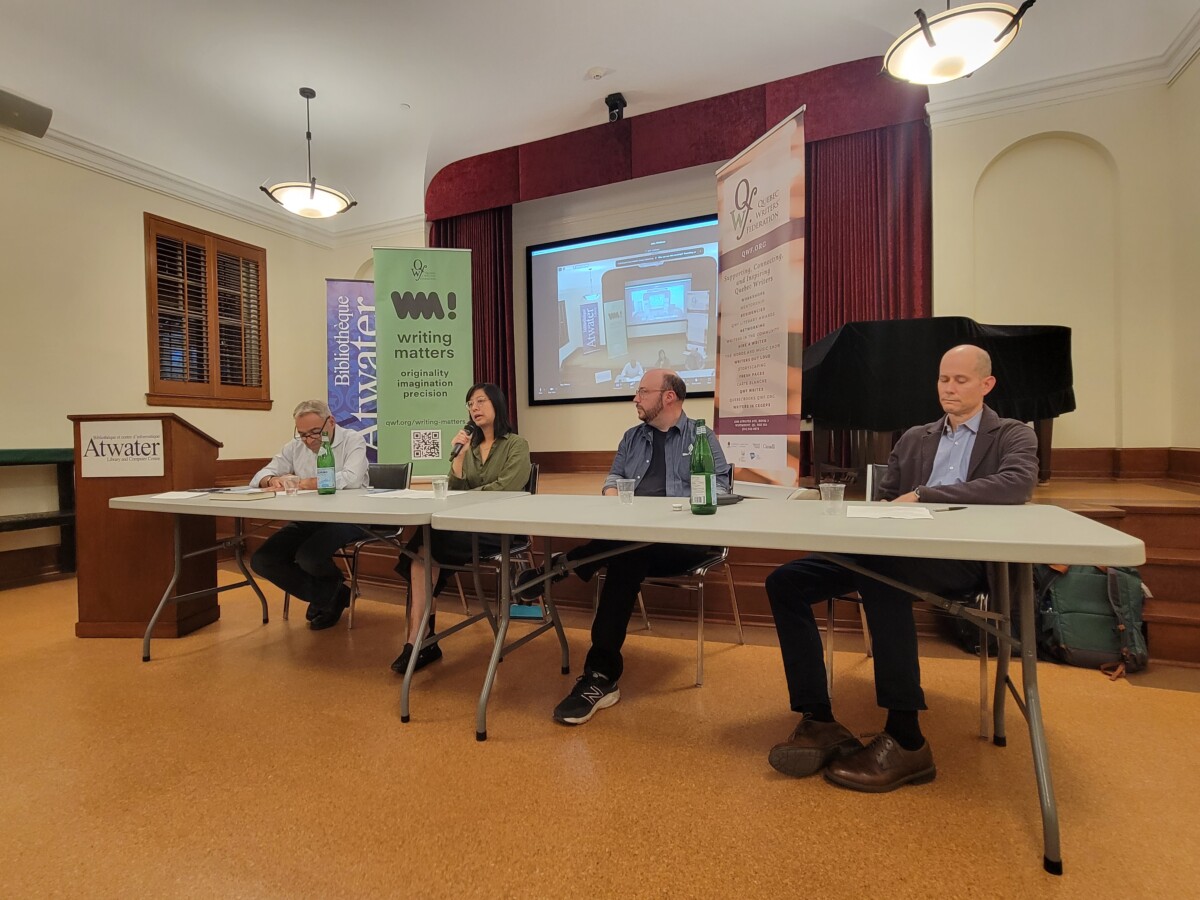The Quebec Writers Federation hosted a panel discussion on artificial intelligence.
On Sept. 21, the Quebec Writers Federation (QWF) held a writers’ panel titled AI and the Future of Writing at the Atwater Library Auditorium. As part of their Writing Matters campaign, the organization invited Professor Cheryl Chan, Professor Andrew Piper, and author Sean Michaels to discuss the academic, professional and emotional landscape surrounding this burgeoning new tool.
Investigative journalist Julian Sher opened the talk with a colourful and poignant introduction, ironically written by ChatGPT. His subversive humor, wit and ease set a fantastic tone for the evening.
The panel discussed the definition, benefits, fears and future applications of generative AI models. Piper defined generative AI models as a new power of memorization, a productive large-language models that are trained on data and produce information based on prompts. Michaels likened AI to a mystical boulder in the forest that finishes your sentences, having used the tool to write part of his new fiction publication. Chan recounted her research into programming her own AI model. She argues that by analyzing how this technology accumulates information, one can question the dominant, normalized presentation of voice. Piper took a more relaxed approach, finding a cool, detached perspective to analyze the lack of and need for AI regulation.
As the speakers bounced off each other, it became evident that they were pre-emptively answering to how we should think or feel about the way in which AI destabilizes a general idea of humanity and the human condition. The guests suggest that writers and academics should critically engage with discourse to avoid fear mongering a dystopian future.
Chan contended that humans will always have a certain mystique and subjectivity, optimistically concluding that: “Fast food didn’t kill the chefs.” The public, therefore, should trust in the resiliency and counter-cultural ability of artists, creatives and writers.
Michael asserted that the fears around AI don’t come from inherent danger within the technology itself but from the wider implications of this technology within a collectively predetermined economic structure. For the panel, the issue is not the fact that AI exists, but rather that it exacerbates the precarity and uncertainty that already exist in capitalism. Michaels suggests that there would be less of an anxiety surrounding job precarity brought on by AI if our economic system prioritized care and collective security.
While the group touched briefly on the effects of societal stratification and wealth inequality, there was curiously little discussion on how to make AI more accessible. While Piper was adamant that a safe use of AI should not replace but augment skills, the discussion did not provide pragmatic solutions to reach this goal.
Sher guided the second portion of the evening into a Q&A session. The crowd provided plenty of thought-provoking comments. Whether the comments came from a struggling lyricist to a passionate teacher concerned with literacy in their classroom, the room was alive with nods of approval, murmurs of disgust and whispers of excitement.
The evening closed with wine, cheese and a more nuanced understanding of the technology that pervades us.
